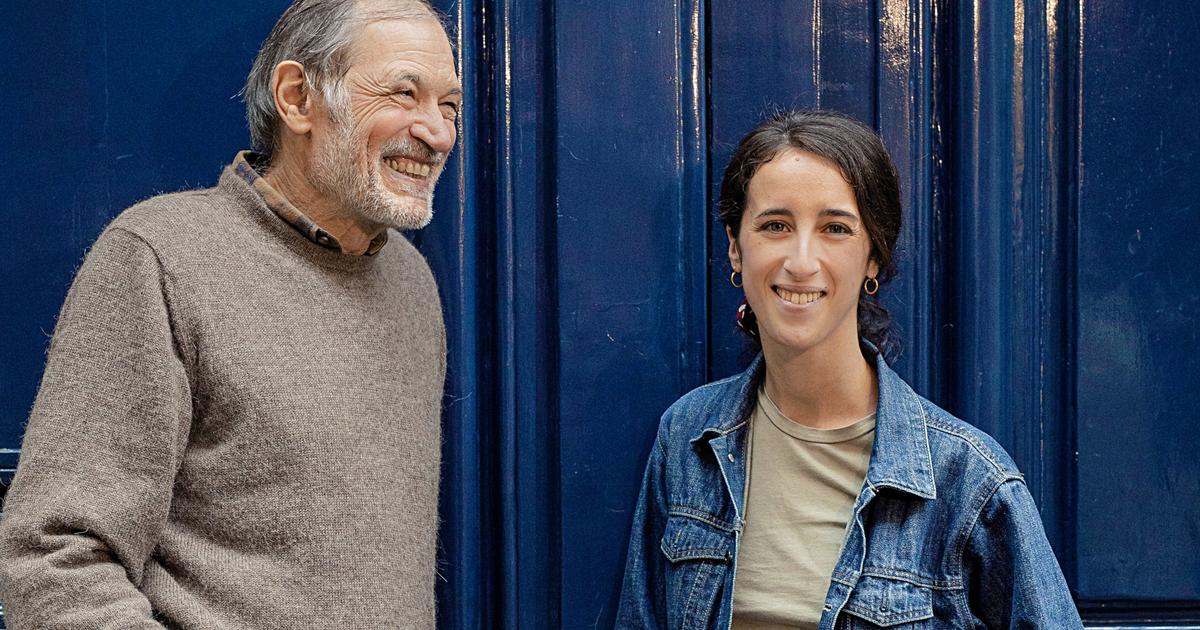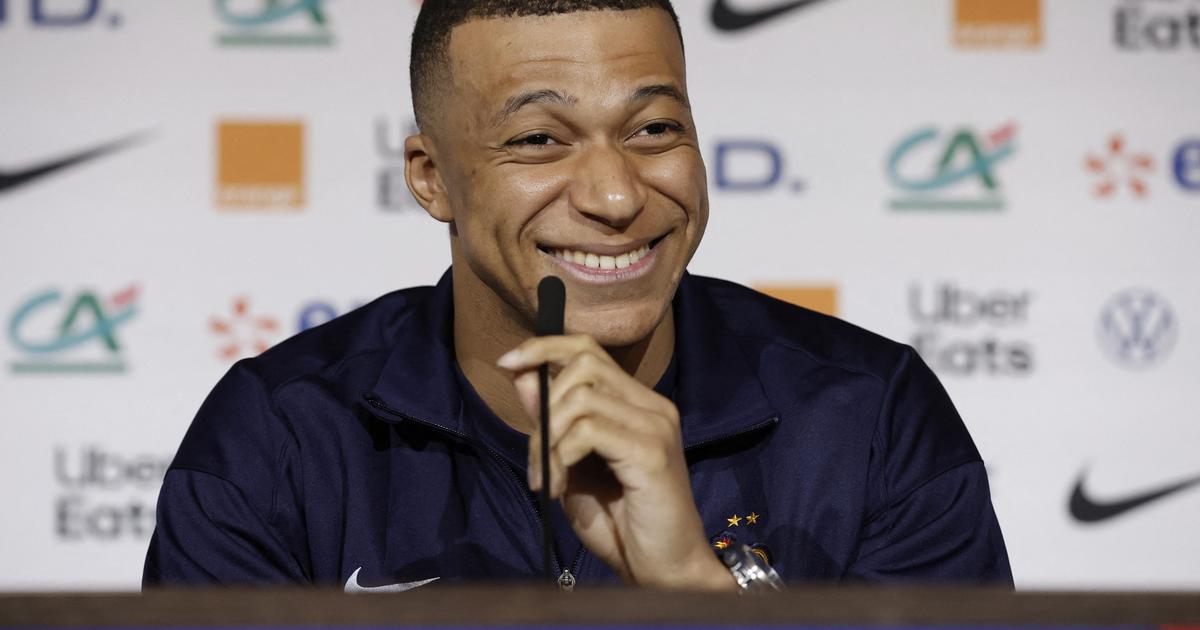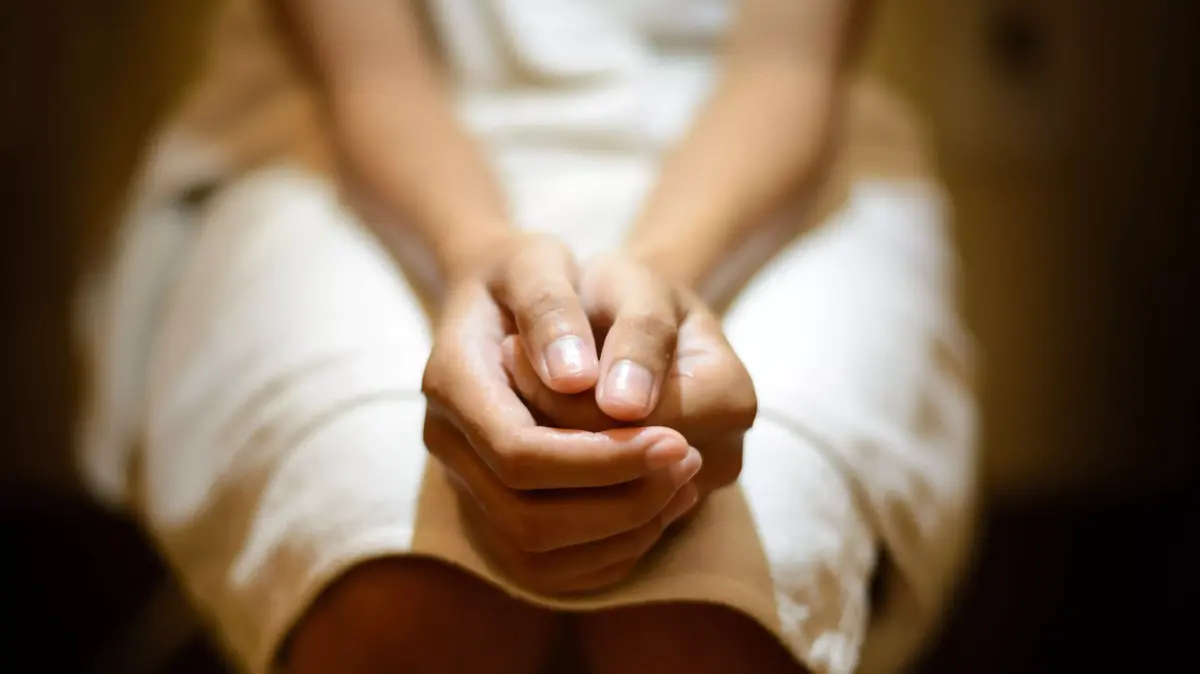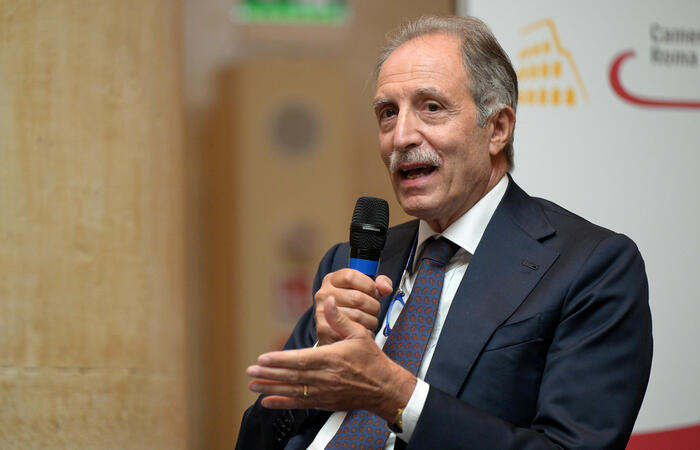He has always devoted himself to our senses (with
La Saveur du monde
2006), to our sorrows (
Experiences of pain,
2010), to our footsteps (
Walking life, a quiet art of happiness,
2020), the sociologist and anthropologist David Le Breton is interested in the body.
This time, he stopped on one of the most fascinating human expressions, the smile, to propose an “anthropology of the enigmatic” (1).
Based on a number of literary, pictorial and cinematographic references, he goes from the smile of the Mona Lisa to the smile of the Buddha, from that of the assassins to the smiley, when he does not question the disappearance of the smile in times of Covid-19. .
He thus analyzes the infinite polysemy of this “contact softener”, which he differentiates from laughter at the same time as he links it to it.
Laughter is precisely the common thread in the thousand lives of Agnès Hurstel, columnist on France Inter, humorist, actress, creator, screenwriter and showrunner of
Jeune et Golri
(2), on the OCS channel, crowned best French series in the Series Mania Festival.
She plays Prune, a 25-year-old standup girl lacking in inspiration who falls in love with Francis (Jonathan Lambert), 46 years old and incidentally the father of a little girl.
Improvised mother-in-law of a child more mature and adult than her, the young woman draws from this experience material for spectacle, while carefully omitting to inform the main interested parties...
Read alsoAgnès Hurstel: "When I started stand-up at 25, I knew nothing about this universe"
In video, “Young and Golri”, the trailer
Miss Figaro.
– David, you are a sociologist and anthropologist;
Agnès, you are an actress, screenwriter and standup artist, and the body is at the heart of your work, both of you.
How does it help you to give voice, to express your voice?
Agnes Hurstel.
– Initially, I did not want to talk.
I didn't want to use my voice, only my body.
I did a lot of classical dance, I thought I would make my life out of it.
But I was diagnosed with deforming scoliosis which required me to wear a corset for ten years, day and night, and I had to give up.
I was thin and flexible.
I then entered the circus school (
at Fratellini, editor's note
), fixed trapeze specialty.
My back problems forced me to give up.
Stuck in this corset, I read a lot.
In this momentum, I wanted to become an actress, or an author.
Tell stories.
Then I realized that what made me feel good was laughter.
I joined laughter and writing.
That gave me what I do today, acting, writing, supervising a series like
Jeune et Golri
.
It is no longer a pain at all.
I also use my body in my work, even if I initially made a default choice.
David LeBreton.
– Being a very uncomfortable young man when I started my university studies, I wanted to understand the link that unites us to our body.
The enigma, finally, which consists in carrying a body, in being a body.
For my doctoral thesis, which develops an anthropology of the body, I tried to examine the forms of domination that were exercised on a daily basis with regard to certain people (women, disabled people, etc.).
Then I continued to reflect on our physical and sensory relationship to the world by working on what I call “the invention of the body”.
That is to say ?
DLB
– At some point in our history as Westerners, we separated the body from the person.
The history of anatomy is exemplary of this, which privileges the universality and no longer the singularity of each.
To this was added, a few decades later, the emergence of anatomical research during the Renaissance, the Cartesian philosophy which saw our body as a machine.
By saying "my body" - which has no meaning in the absolute, because we are our person -, we show that we have inherited this dualism according to which we have a body on the one hand and a spirit on the other hand. 'somewhere else.
I continued this exploration with an anthropology of the face, then worked on pain, the senses, the voice, laughter and, recently, the smile.
Before the word, there is the face, the body, the smile, the energy...
Agnes Hurstel
Agnès, in your profession, the body, the face or the words... How does it combine?
AH
– The profession of actor and author in France remains very texto-centric.
This is due to tradition, the obsession with the verb which I think we are sometimes prisoners of.
I believe that a scene is successful when the situation is so well written and acted that the bodies talk to each other and express their intentions.
I trained at the Jacques-Lecoq theater school, and they taught me that the word is the last thing that must come, the one that happens when you have nothing else to do on the scene.
But first you have to enter the scene, make it live, make it exist – that's the whole question of charisma.
Before the word, there is the face, the body, the smile, the
- The presence.
AH
– Exactly!
DLB
– This is what I covered in
Anthropology of Emotions
, which shows how our emotions are socially and culturally constructed.
When he acts, the actor transforms his body into signs, into language.
He translates and communicates feelings that he doesn't feel – it's Diderot and
Le Paradoxe sur le actor
– to an audience that understands them while being aware that we are at the show.
ah
– Yes, when you play, it's the adoption of a physical position, a posture, a look, and therefore the body, which will bring the emotion, the right thought.
And I'm sure that my training centered on dance and the circus has influenced my acting in this way.
Diderot indeed says that one must show an emotion, but not live it, because it is up to the spectator to live it.
If you see someone crying on stage, you can't cry anymore: the actor stole your tear.
In my job, I constantly observe others to reform something that is moreover the desire of a director… Being an actor, in fact, is the opposite of a puppet.
It's analysis, mind twisting and construction.
DLB
– The actor illustrates the way we ourselves behave in life to express our emotions.
Even sincere, their expression remains a representation, a staging.
It mobilizes certain body movements, a precise, ritualized vocabulary, gestures and attitudes, which vary according to culture.
Full screen
David Le Breton is a sociologist and anthropologist.
Philippe Quaisse / Pasco
Your latest book, David, raises the enigma of the smile, at a time that advocates transparency… How enigmatic or ambiguous is it for you?
DLB
– There are countless figures of laughter and smiles, and it is this ambivalence that interests me.
The smile, like laughter or the voice, expresses, but can also conceal.
They are both revealers of who we are and masks.
You can laugh or smile out of hatred – school bullying is based on laughter, after all – just as smiling can be linked to distress and the desire to deceive.
I tell in my book this anecdote of the Japanese colleague who smiles saying that he has lost his mother and will not be able to join us…
AH
– You mention a form of cultural modesty, but there is also a “feminine” modesty linked to the education of young girls.
I was always told that I laughed too hard and that it was ugly… There are women – I think of my mother – who smile when they are unhappy, in the same way that they say sorry when they are pushed around .
The smile, like laughter or the voice, expresses, but can also conceal
David LeBreton
DLB
– This education bears the mark of a conception of laughter which has lasted for centuries and which
Le Nom de la rose illustrates well
.
Laughter in medieval times is considered the instrument of the Devil, and the monks who discovered and began to read the second volume of
The Poetics of Aristotle
,
devoted to comedy, and which we thought was lost, are quite simply murdered... Laughter would be harmful, subversive, and linked to the body which it shakes and deforms, whereas the smile, which concerns not the body but the face, would be grace and spirituality, because it illuminates, elevates.
We also have the idea that a woman's body must not overflow, that it must remain closed when the man overflows.
In laughter scenes, in advertisements, for example, the laughing woman very often puts her hand to her mouth, while the men laugh out loud – it's a form of virility.
ah
– The stand-up takes place at night, in the basement.
It's a form of performance generally organized by men, and yet I never had any problems, even though I started young and looked very fragile.
I think it's because a comedian is a woman in a male environment who assumes that she has a thought, a laugh, that she takes up space alone on stage.
Being the jokester is a form of power.
Because I laugh at myself before you laugh at me, I can afford to joke about you.
It's a game of intelligence and therefore of non-domination, which breaks any relationship of predation.
Agnès, you said that you came to stand-up because laughter made "anxiety stop"...
AH
– There are few real subjects – death, abandonment, pain… And we can approach them by plunging into anguish or by taking a distance that brings laughter.
I chose the second option.
Whether in a radio column, in stand-up or in a series, a film, I work my thoughts on this vital and terrible material to deliver to people an interpretation that is audible, with a catharsis that works.
Laughter in fiction allows something extraordinary.
The first layer of lasagna is the valve, the comedy of the situation, the visual gag, everything that makes you laugh.
The second layer below, if done right, is identification.
People laugh and then say to themselves: "Hey, it looks like me last night with my wife, or my child..." And the third layer is: "But in fact,
it makes me want to cry, we are talking about something that tightens my throat.
Good comedies deal with the same subjects as dramas.
We talk about what is both impossible and vital to talk about.
My dream, since I started, is to be able to tell about my corset and the physical violence on childhood inflicted by doctors who tell you that there is no operation possible and that you going to have to wear this thing for a decade… For the moment, I can't do it.
Full screen
At 30, Agnès Hurstel is one of the most gifted comedians of her generation.
Philippe Quaisse / Pasco
David, you write that laughter “relieves the difficulty of being oneself”?
DLB
– Yes, laughter is an exorcism of the pain of living, a way of taking a detour to defuse the virulence of events.
Many comedians are lively flayed people who manage to find a balance in their existence by laughing at suffering... It must also be said that laughter has been present in the darkest periods of history, under dictatorships or in the death camps.
This is how one survives and creates complicity with others.
The deportees could sometimes joke among themselves, it was an absolutely dizzying beautiful escape...
AH
– My grandmother published her diary of her adolescence during the war, to open up to
me would be indiscreet.
My entire paternal family was deported.
She talks about lost earrings, the boy she loved in a party the week before... Life is there despite the bombs, the father arrested in Marseille... Following this reading, I wrote a film with Frankie Wallach released in September,
Too much love
,
about his grandmother who survived Auschwitz, and we made a comedy out of it.
Often, in the duty of memory, we are faced with something very heavy... But I am convinced that laughter must be able to go everywhere.
The film opens with a very funny scene, where Julia Wallach, 94, says that she has more insurance for her teeth and eyes than her friend Ginette, because she has spent more time in camp.
And that's not blasphemous!
Laughing helps to suffer less, but also and above all to move forward...
Laughter is an exorcism of the evil of living, a way of taking a detour to defuse the virulence of events
David LeBreton
Laughing helps us stand tall?
DLB
– Laughter is a form of resistance, more than resilience: it's about facing the world head-on and diverting it from its virulent meanings by reformulating them, redefining them.
AH
– This is how I approach my job.
Laughter is a fight.
As the corset is a fight, being complexed young is a fight… Just like being there is a fight.
DLB
– Yes, and we both have a way of getting involved in our jobs.
We could be indifferent – I could practice an indifferent and careerist sociology, and Agnès make entertainment to distract attention.
But no.
I have adopted Gramsci's motto, which speaks of "the pessimism of intelligence" - we acknowledge that there is a lot of injustice and inequality in the world -, but he added "the optimism of willingness".
And I also like to add "optimism of the heart"... It's Fitzgerald's phrase: "One should be able to understand that things are hopeless and yet be determined to change them."
Nothing is ever lost, the world is always in front of us.
(1)
Smile.
Anthropologie de l'énigmatique
,
by David Le Breton, to be published on April 1 by Éditions Métailié, 224 pages, €22.
(2)
Jeune et Golri
,
series by Agnès Hurstel, directed by Fanny Sidney, with Agnès Hurstel and Jonathan Lambert, on OCS.















/cloudfront-eu-central-1.images.arcpublishing.com/prisa/IGZ7GOCXZ5GUPAQ2HWGK6Z76BU.jpg)